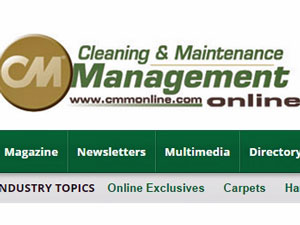
The Greens pushed for the workplace changes last year and, after debate and a series of amendments, Labor’s Closing Loopholes No. 2 Bill passed the Senate on February 8 this year with the support of Labor, the Greens and independent senators Lidia Thorpe and David Pocock. The Fair Work Amendment laws strengthen rights for employees to disconnect from work emails and calls, stating that they are not required to “monitor, read or respond to work communications from their employer outside of work hours”.
The final vote descended into confusion amid concerns that violators of the new law could inadvertently face criminal sanction and fines of up to $18,000 if they persisted in contacting a worker after receiving a ‘stop’ order from the Fair Work Commission. Labor has vowed to legislate to fix this aspect of the laws, which will not take effect until later this year.
Jenny Boymal, partnership manager for The Proven Group, a people and culture consultancy, says the new laws have created some confusion and raise questions for the cleaning industry and other sectors that rely heavily on casual and shift workers.
“With the cleaning industry you’ve got a lot of the people whose standard work hours are outside of 9-5,” she says. “So, the lines are blurred.” In addition, Boymal says right-to-disconnect legislation could cause angst for many work-from-home employees who “want to be able to work disjointed hours and take calls and emails at non-traditional hours”. “I actually don’t think people want flexibility to go away.”
Nevertheless, Boymal thinks controversy over the laws could prove to be a “storm in a tea cup” because most reputable businesses already have in place contractual provisions to prevent negative work-life practices. Only those that are “unscrupulous” are likely to feel the full force of the new laws. “If we’re expecting employees to be available in the evening, outside their normal hours of work, there have been requirements around those sorts of arrangements built into industrial relations instruments for a long time now.”
Dr Jim Stanford, director of the Centre for Future Work, says the new laws are “very modest and incremental” and will not result in any unreasonable bans on contacting staff, including calling shift workers at night to check on urgent roster issues.
“That’s still going to happen, but what the bill is aiming to do is stop the routine, regular use of unpaid overtime that is facilitated by all of these digital devices that follow us around,” he says. “When there are genuine operational reasons to call people, then it’s absolutely in the ball park and workers must have the right to say ‘no’ to contact without being punished.”
Employer concerns
The ‘right to disconnect’ is based on legislation in France, where larger companies are obliged to set out the hours when staff are not supposed to send or answer emails.
In Australia, some employer groups have questioned the practicality of the changes, with the Australian Industry Group claiming it could damage the consensus on flexibility in the workplace and see employers react by stopping accepted casual work arrangements.
Meanwhile, the Australian Human Resources Institute has stated that its own research shows that 41 per cent of organisations surveyed already have a form of the right-to- disconnect policy in place.
Melissa Behrend, a director at HR on Call, agrees that there are many “grey areas” around the laws, including existing flexible work conditions. “For example, if you’ve got younger children and you say, ‘I want to pick up my child from school and then I’ll work after hours’. How does that now work?” she asks.
Likewise, Behrend says cleaning companies may face scrutiny if they contact shift workers in the evening to see if they can cover shifts, while companies with salaried employees who are paid above award rates to participate in after-hours international calls will have to consider the implications of the changes.
“So, there is confusion and I think the legislation was rushed through,” she says. “Sometimes we go very quickly to legislation, rather than thinking through things. With some companies, it’s the corporate culture that needs to change, rather than the legislation.”
The next steps
As they factor in right-to-disconnect laws, Boymal urges cleaning companies to insist on very clear, transparent discussions with employees to explain workplace rules and ensure that the needs of both sides are met.
She says it will be important for companies to consider their communication policy. “This will include items such as communication about roster changes, sick leave and the implications around sharing of information, workplaces that have diverse and varied work hours and other matters that would involve communication outside of standard hours. It is important for leaders and managers within organisations to receive training on the company’s communication policy and ensure they stay within the guidelines.”
Such transparency will reduce the likelihood of any “ugly surprises” around workplace conditions. Boymal also suggests that some companies may choose to build “on-call allowances” into contracts for employees whose role requires after-hours contact. “Bosses need to be really specific with contracts of employment.”
Dr Stanford says the new bill will reinforce the need for employers to compensate workers who are expected to be on call as part of their typical role. “Many employers expect their workers, in essence, to be on call without paying them to be on call and that is the malpractice that this bill is trying to address.”
In response to the new laws, he expects the Fair Work Commission to consider new provisions in modern workplace awards that clearly outline what constitutes “reasonable” contact with workers in a range of different jobs. “(But) this discussion of what is reasonable is complex and will take a long time to unfold.”
What are the new laws?
As part of Labor’s latest industrial reforms, the ‘right to disconnect’ is a workplace condition enabling workers to ignore calls, emails or messages from their bosses after work hours, where reasonable, without fear of punishment.
Can you still be contacted outside regular hours?
Yes. Labor says bosses can make contact after hours, but if the worker does not respond, they cannot be punished for it.
What happens if there is a dispute?
If workers cannot resolve the issue with their employer, they can go to the Fair Work Commission, which will consider the matter.
Comment below to have your say on this story.
If you have a news story or tip-off, get in touch at editor@incleanmag.com.au
Sign up to INCLEAN’s newsletter.


